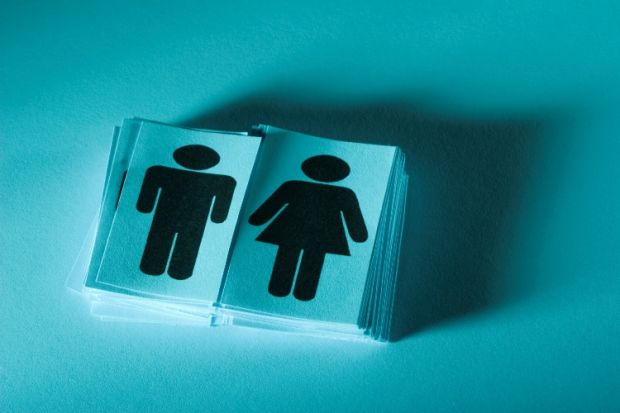The University of York has been forced to issue an apology on its website after receiving a social media backlash for deciding to mark International Men’s Day.
In a press release published on 12 November, the university announced its intent to observe the event by “highlighting some of the issues that have an adverse impact on equality for men”.
Adrian Lee, of York’s equality and diversity committee, was quoted in the release as saying: “In the area of gender equality, the focus has rightly been on raising awareness about – and removing barriers for – women.
“We are, however, also aware of some of the specific issues faced by men.”
The release went on to talk about how men were “under-represented in the student population as a whole” and “in a number of academic disciplines across all three faculties”.
“In academic staff appointments, the data suggests that female candidates have a higher chance of being appointed than men. In the professional support services, there are areas where men are significantly under-represented. Likewise in academic departments, the support staff complement is often heavily weighted towards women, with some departments employing no men at all in these roles,” it stated.
“The reasons for these circumstances are complex and the solutions will not be found overnight, but we are resolved to address these issues systematically and fairly, in the same way that we approach unfairness and discrimination faced by women.”
However, after publication on York’s website the release received a wave of criticism on social media, ranging from incredulity to outrage. The post was subsequently removed by the university.
Writing on the Feminist Philosophers blog, Jennifer Saul, from the University of Sheffield’s department of philosophy, called the post “very counterproductive”.
“There is, it is true, a rather controversial study which has been wrongly reported as establishing this,” she wrote, referring to the point about female academics having a higher chance of being appointed to a post than their male counterparts. “There are also masses of studies arguing the opposite.
“To toss this in as if it’s established, and in such a way as to suggest the people whose progress we should now worry about are men, is grossly irresponsible in the face of numbers showing that women are still massively under-represented.”
An open letter to the university’s registrar, David Duncan, who was quoted at the bottom of the original York press release, also condemned the release, calling the statement “crass”.
“We believe that giving practical application to concepts of equality and diversity should be taken seriously by the university,” it stated.
"However, we do not believe that this is furthered by the promotion of International Men’s Day in general and are concerned by the particular way in which the university has chosen to do so.
“A day that celebrates men’s issues – especially those outlined in the university’s statement – does not combat inequality, but merely amplifies existing, structurally imposed, inequalities. The closing remark – ‘gender equality is for everyone’ – echoes misogynistic rhetoric that men’s issues have been drowned out by the focus on women’s rights.”
The letter, which was published today, has garnered more than 190 signatories. The University of York has since released a statement on its website, apologising for any offence caused.
“We are sorry that this has caused unhappiness for some members of the university community who felt that the statement was inappropriate and should never have been issued,” it reads.
“The intention was to draw attention to some of the issues men tell us they encounter and to follow this up by highlighting in particular the availability of mental health and welfare support which we know men are sometimes reluctant to access.
“The Equality and Diversity Committee is clear that the main focus of gender equality work should continue to be on the inequalities faced by women, and in particular the under-representation of women in the professoriate and senior management.
“In the meantime, the statement marking this year’s International Men’s Day has been withdrawn and we can confirm that we will no longer be marking International Men’s Day 2015.”
However, the York decision later prompted a further backlash on social media, and prompted the organisers of International Men’s Day to criticise the signatories to the open letter.
Glen Poole, the UK coordinator of the event, said in a blog post that was also added underneath this article that he was “deeply saddened” by the U-turn.
“When 13 a men a day in the UK are dying from suicide, it is essential that everyone in positions of power, trust and influence does everything they can to help men talk about the issues that affect them,” he wrote.
“And that includes the academic community and student representatives.”
He added: “It seems that on this occasion, those academics, student representatives and alumni who have campaigned against the university’s plans to mark International Men’s Day, have put their personal gender politics ahead of their compassion for men and boys in crisis and distress.”
Register to continue
Why register?
- Registration is free and only takes a moment
- Once registered, you can read 3 articles a month
- Sign up for our newsletter
Subscribe
Or subscribe for unlimited access to:
- Unlimited access to news, views, insights & reviews
- Digital editions
- Digital access to THE’s university and college rankings analysis
Already registered or a current subscriber? Login






